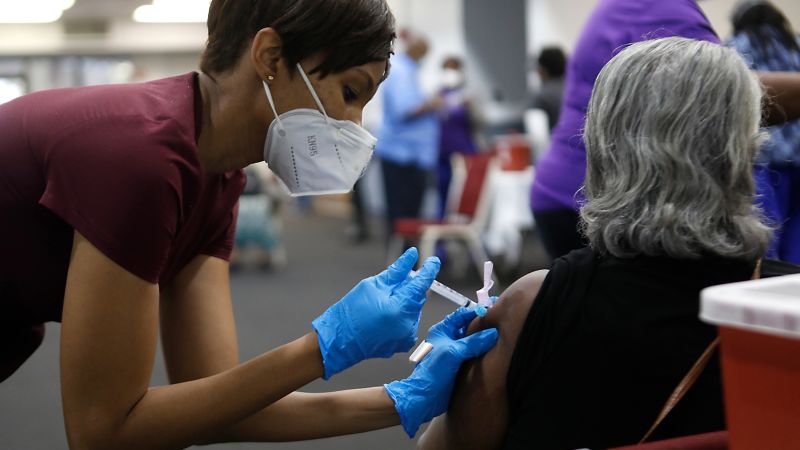What to Know About Vaccines After 50.
You already know it’s important to get your flu vaccine every year, ideally by the end of October. And when you go in for the shot, it’s a great time to make sure you’re up-to-date on all the other immunizations you should be receiving as an adult. After all, it’s not just babies and youngsters who need a poke to protect against serious, and potentially lethal, diseases. Adults need them too, especially as our immune systems weaken with age.
As we age, our immune systems become less robust, making us more vulnerable to certain diseases and infections. Vaccines play a crucial role in protecting our health, especially as we enter our 50s and beyond. In this blog post, we'll discuss eight essential vaccines that every individual over 50 should consider to maintain optimal health and well-being.
What vaccines do adults need?
Talk to your health care provider about your specific needs. Adult vaccines to consider include:
- 1. Influenza (Flu) Vaccine. The influenza vaccine is an annual necessity for individuals over 50. The flu can lead to severe complications, such as pneumonia, which can be particularly dangerous for older adults. Getting a flu shot each year can help reduce the risk of infection and its associated complications.
- 2. Shingles (Herpes Zoster) Vaccine. Shingles is a painful and debilitating condition caused by the reactivation of the varicella-zoster virus. The risk of shingles increases with age, and the vaccine, typically given as Shingrix, can significantly reduce the chances of developing this painful condition.
- 3. Pneumococcal Vaccines. Pneumococcal disease can lead to serious respiratory infections and pneumonia. Adults over 50 are recommended to receive two different pneumococcal vaccines – Pneumovax 23 and Prevnar 13. These vaccines provide protection against a range of pneumococcal strains.
- 4. Tetanus, Diphtheria, and Pertussis (Tdap) Vaccine. The Tdap vaccine not only provides a booster for tetanus and diphtheria but also protects against pertussis (whooping cough). Pertussis can be severe and even life-threatening in older adults, so keeping up to date with this vaccine is crucial.
- 5. Hepatitis B Vaccine. Hepatitis B is a viral infection that can lead to liver damage. Although it is more common among younger individuals, adults over 50 with specific risk factors, such as diabetes or certain medical conditions, may benefit from the hepatitis B vaccine.
- 6. Meningococcal Vaccine. Meningococcal disease is rare but can be severe. Older adults with certain medical conditions or those living in close quarters (e.g., college dorms or long-term care facilities) may need the meningococcal vaccine to protect against this potentially deadly infection.
- 7. COVID-19 Vaccine. The COVID-19 pandemic has highlighted the importance of vaccines. Older adults are at a higher risk of severe illness and complications from the virus. It's essential to receive COVID-19 vaccines and booster shots to protect yourself and those around you.
- 8. Human Papillomavirus (HPV) Vaccine. While HPV vaccination is often associated with younger populations, some individuals may still benefit from it after 50. HPV can lead to various cancers, and if you haven't been vaccinated earlier in life, discuss the possibility with your healthcare provider.
Also see: RSV Season Safety Tips: Keeping Kids Healthy
Vaccines are a critical component of maintaining good health as we age. They can help prevent serious diseases, protect against complications, and ultimately enhance our quality of life. Consult with your healthcare provider to determine which vaccines are right for you based on your age, medical history, and specific risk factors. Remember, staying up to date with recommended vaccines is a proactive step towards a healthier and more vibrant life after 50.
Remember, this blog provides general information and should not replace professional medical advice. If you or a loved one has any of the above symptoms it's advisable to seek professional help from your healthcare provider or call or visit our Nearest Emergency Room for medical help. We have board-certified physicians, nurses and staff to help you recover and give appropriate treatment and medical advice.
We have ER locations across the Dallas-Fort Worth metropolitan area that are open and here to help you 24/7 If you or your family have a medical emergency.
We have 9 facilities spread across the DFW area with average wait times of less than 10 mins that are OPEN 24/7 located in Hurst, Colleyville, Frisco, Highland Village, Hillcrest, Uptown, Little Elm, Mansfield, and Texoma.



.jpg)